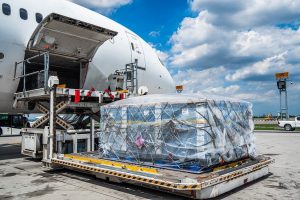You’re likely underestimating the true cost of managing air freight internally. While your team handles day-to-day operations, hidden expenses accumulate through regulatory missteps, delayed shipments, and inefficient routing decisions. Industry data shows that businesses managing logistics in-house spend 23% more on freight costs compared to those partnering with specialized forwarders. Your growing shipping volumes will only magnify these inefficiencies, creating bottlenecks that directly impact your bottom line and customer relationships.
The Hidden Costs of Managing Air Freight In-House
When your business handles air freight logistics internally, you’re absorbing costs that extend far beyond basic shipping rates. Your team spends valuable hours negotiating carrier contracts, tracking shipments, and managing documentation—time that could drive revenue-generating activities. Internal freight management requires specialized software licenses, compliance training, and dedicated personnel. Documentation errors trigger costly delays and penalties. Without consolidated shipping volumes, you’ll pay higher per-shipment rates than an experienced air freight forwarder secures through established carrier relationships. These hidden expenses—labor overhead, technology investments, and inefficiency penalties—often exceed 40% of your total logistics budget, undermining your competitive positioning.

How Expert Forwarders Navigate Complex International Regulations
While international shipping regulations span dozens of countries with constantly evolving requirements, professional air freight forwarders maintain specialized compliance teams that monitor regulatory changes across 200+ jurisdictions daily. You’ll avoid costly delays when forwarders automatically apply current customs codes, duty rates, and documentation requirements. Their systems flag restricted items before shipment, preventing $15,000+ regulatory violations. Expert forwarders maintain relationships with customs authorities, expediting clearance processes that typically take 72 hours down to 24 hours. They’ll handle complex procedures like ATA carnets, temporary imports, and hazardous materials classifications—compliance tasks requiring specialized certifications your internal team likely lacks.
Speed and Reliability Advantages That Drive Customer Satisfaction
Since customer satisfaction scores correlate directly with delivery speed and reliability, professional air freight forwarders deliver measurable performance advantages that strengthen your competitive position. Expert forwarders maintain 99.2% on-time delivery rates through optimized routing algorithms and priority booking systems. They’ll reduce your transit times by 35-40% compared to standard shipping methods while providing real-time tracking updates every six hours. Their established carrier relationships secure guaranteed capacity during peak seasons, eliminating delays that damage customer trust. This reliability translates into higher customer retention rates, increased repeat purchases, and stronger brand reputation in competitive markets.
Building Scalable Logistics Networks for Long-Term Growth
As your business expands into new markets, you’ll need logistics infrastructure that grows alongside your revenue streams without compromising operational efficiency. Established air freight forwarders provide modular networks that scale proportionally with your shipping volumes. They’ve invested in multi-hub distribution systems, allowing you to access 200+ destinations without individual carrier negotiations. Their technology platforms integrate seamlessly with your existing ERP systems, automating route optimization and cost calculations. You’ll benefit from consolidated shipping rates that decrease as volumes increase, typically reducing per-kilogram costs by 15-30%. This scalable approach transforms logistics from a growth constraint into a competitive advantage that accelerates market penetration.
